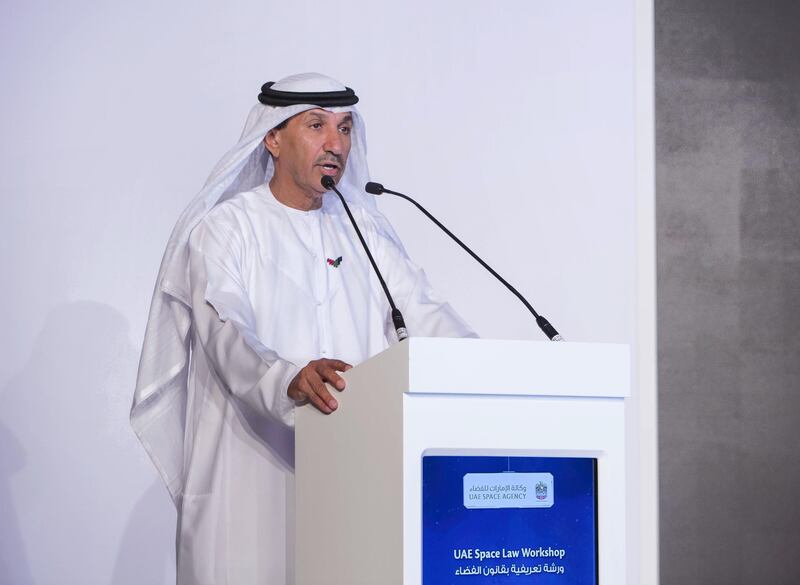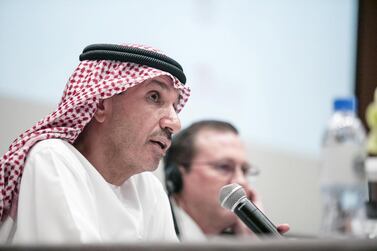The UAE’s first space law, that regulates the ownership of space objects, sending astronauts to space and operating space tourism flights, has come into effect - and includes hefty fines of up to Dh10 million for offenders.
The UAE National Space Law came into effect in December and provides a regulatory framework for space-related activities in the Emirates.
It enables international and local private space companies – including planned Virgin Galactic space tourism flights from Al Ain Airport - to operate in the country after obtaining a permit.
"It's a very forward-looking law. It was consulted with the international space community," Dr Mohammed Al Ahbabi, director-general of the UAE Space Agency, told The National.
“It means that we have a regulated space programme and the right environment to attract space investment.”
The legal document, seen by The National, also lists the fines offenders could face.
Anyone caught participating in space activities or owning a space object - be it any kind of space rock or fallen pieces of a spacecraft - without a permit can face a jail term of up to two years and a fine between Dh100,000 to Dh10m.
Anyone who does not report fallen pieces of space objects found in the UAE face a fine between Dh30,000 to Dh3m.
And a fine of up to Dh500,000 and no less than a year of jail await operators who fail to provide proof that a person they’re sending to space is properly trained and fit for the flight.
This law is expected to apply to upcoming space tourism flights operators, such as Virgin Galactic, in the UAE who plan to send residents to sub-orbital flights. Several UAE residents have purchased tickets for these flights.
All of the fines and imprisonment terms can be doubled if the offender breaks the same law twice.
As the country grows its space sector, after sending first Emirati astronaut in space last year and the upcoming launch of the Hope Hope to orbit Mars, the UAE Space Agency has been working with the United Nations Office for Outer Space Affairs to ensure it meets international policies.
“[The UAE] is developing a strong ability to send spacecrafts to space and the upcoming one is to Mars, but they are also trying to attract a lot of activities from the international community,” said Dr Simonetta Di Peppo, director-general of Unoosa.
“The national space law is an important element in this picture because it’s linked to what we want to do together.”








